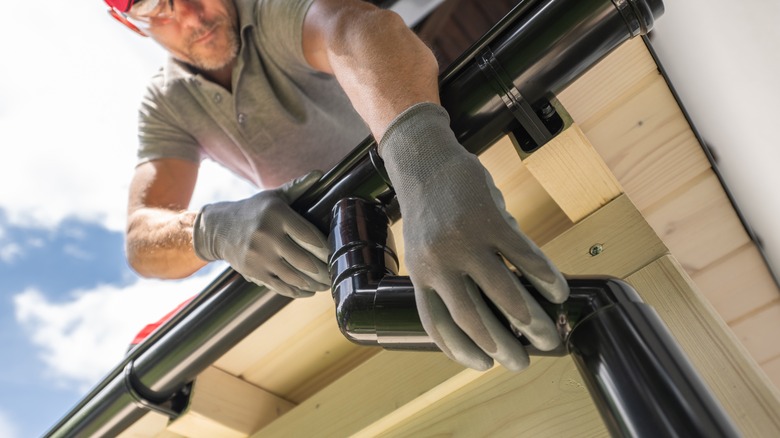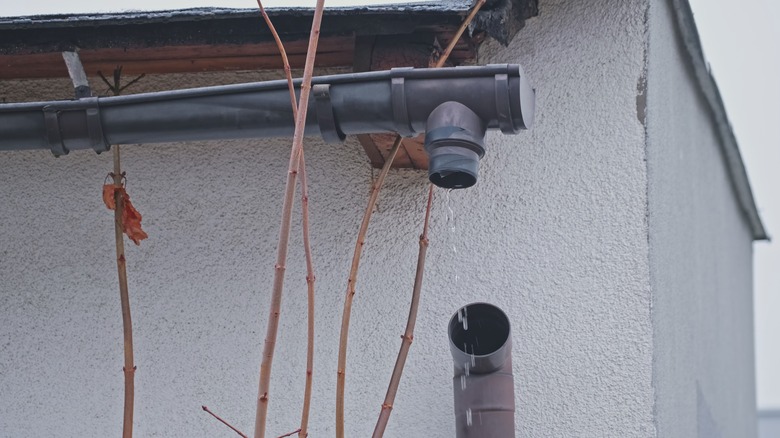The Worst Type Of Gutter Material To Use For Your Home
Gutters may not be something you think about often, but they're essential to protecting your home. When you're picking out gutters, the most important things to keep in mind are durability, how much maintenance they'll need, and how well they'll do their job. But here's the thing: If you choose the wrong material, that vital system could quickly lead to troublesome and expensive issues. Durable materials suited to your climate will reduce long-term costs and ensure gutters effectively protect your home for years to come.
So, what's the worst gutter material you can use for your home? The answer is vinyl gutters (also called PVC gutters). Vinyl gutters are often advertised as a cost-effective and easy-to-install option, making them seem like an attractive choice for many homeowners. Vinyl is lightweight, available in a variety of colors, and doesn't rust. Plus, if you're a DIY enthusiast, you can easily assemble and install vinyl gutters yourself, without needing professional experience. But there are some significant downsides to this material that can end up costing you more in the long run.
Why vinyl gutters are a bad idea
Vinyl gutters lack durability, especially in extreme weather. Cold weather causes vinyl to crack, and hot weather causes it to warp and sag. This temperature sensitivity often leads to frequent repairs and replacements. Even without extreme temperatures, vinyl gutters typically only last between 10 and 20 years, far less than metal alternatives like aluminum or steel. Another major problem with vinyl gutters is that they have a tendency to leak. Most vinyl systems are sectional, and over time, the seams can weaken, leading to leaks. These leaks can cause substantial damage to your home's foundation or flood your basement. Although vinyl doesn't rust, it requires regular maintenance because of general wear and tear, shifting or damage from external factors like falling branches or snowfall.
For a more reliable option, consider aluminum, zinc or copper gutters. They may initially come at a higher cost, but they're much more durable and long-lasting. If you maintain your aluminum gutters properly, they can resist corrosion and last for decades, and copper has an industrial, trendy look while also being incredibly durable. In the long run, vinyl gutters' frequent need for repair and their susceptibility to leaks make them a poor investment compared to sturdier alternatives. Investing in a more durable material now will save you time and money in the future.

